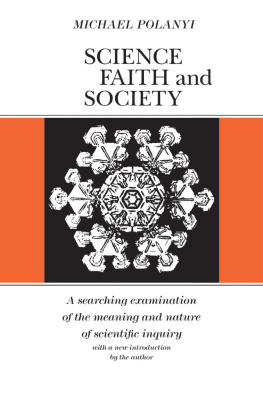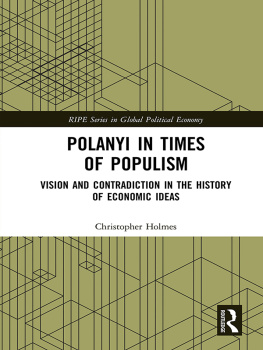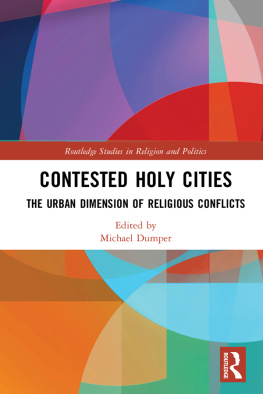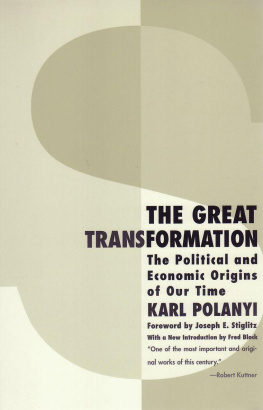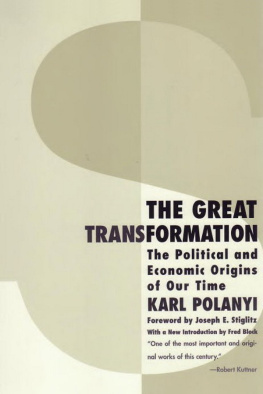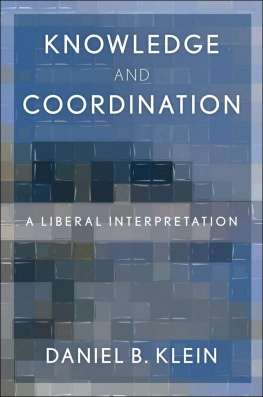Michael Polanyi - The Tacit Dimension
Here you can read online Michael Polanyi - The Tacit Dimension full text of the book (entire story) in english for free. Download pdf and epub, get meaning, cover and reviews about this ebook. year: 2009, publisher: University of Chicago Press, genre: Science. Description of the work, (preface) as well as reviews are available. Best literature library LitArk.com created for fans of good reading and offers a wide selection of genres:
Romance novel
Science fiction
Adventure
Detective
Science
History
Home and family
Prose
Art
Politics
Computer
Non-fiction
Religion
Business
Children
Humor
Choose a favorite category and find really read worthwhile books. Enjoy immersion in the world of imagination, feel the emotions of the characters or learn something new for yourself, make an fascinating discovery.
- Book:The Tacit Dimension
- Author:
- Publisher:University of Chicago Press
- Genre:
- Year:2009
- Rating:4 / 5
- Favourites:Add to favourites
- Your mark:
- 80
- 1
- 2
- 3
- 4
- 5
The Tacit Dimension: summary, description and annotation
We offer to read an annotation, description, summary or preface (depends on what the author of the book "The Tacit Dimension" wrote himself). If you haven't found the necessary information about the book — write in the comments, we will try to find it.
The Tacit Dimension — read online for free the complete book (whole text) full work
Below is the text of the book, divided by pages. System saving the place of the last page read, allows you to conveniently read the book "The Tacit Dimension" online for free, without having to search again every time where you left off. Put a bookmark, and you can go to the page where you finished reading at any time.
Font size:
Interval:
Bookmark:
by Amartya Sen
CHICAGO AND LONDON
This ePub was created from the OCR'd PDF found on the Internet. OCR errors were carefully corrected and the text prepared for this unofficial ePub edition.
Petition The University of Chicago Press to release this seminal work of science and philosophy, either as a new digital edition or from copyright.
Acknowledgments
Foreword by Amartya Sen
Introduction
1
TACIT KNOWING
2
EMERGENCE
3
A SOCIETY OF EXPLORERS
Notes
Related Bibliography
Index
I am grateful to Yale University for extending to me the invitation to deliver the Terry Lectures of 1962, from which this book has been developed. The theme of the book took shape during my years at Merton College, Oxford, as Senior Research Fellow, and was first expounded in public lectures delivered at the University of Virginia in 1961. I developed these ideas further during my stay at the Center for Advanced Studies in the Behavioral Sciences at Palo Alto, at Duke University where I lectured during the summer of 1964, and at Wesleyan University where I was a Senior Fellow at its Center for Advanced Studies in 1965-66.
I gratefully remember my friends who responded to my thoughts and enriched them. Professor Philip Hallie of Wesleyan, Professor Marjorie Grene of the University of California, and my wife (who also prepared the index) read the manuscript and did much to put it into better shape.
I wish to thank Professor Harry Woolf, Chairman of the Department of the History of Science, for granting permission to use part of my essay Science and Mans Place in the Universe which appeared in his Science as a Cultural Force (Johns Hopkins Press, 1964).
This insightful book by Michael Polanyi was first published in 1966. It is based on his Terry Lectures delivered four years earlier, at Yale University. It is a deeply philosophical book, full of penetrating ideas, particularly about the knowledge of the world and the world of knowledge. The book, like other philosophical works of Polanyi, has received widespread attention and has generated a large literature. In many ways, it has become a part of contemporary culture, and I am delighted that the book is being reissued.
Interestingly enough, philosophy is not, in fact, the subject in which Polanyi achieved his initial fame. In discussing and assessing the contents of this book and its far-reaching implications, it may be helpful to understand the exceptional range of Michael Polanyis intellectual interests and involvements, since they strongly influenced the nature of the questions that he asked and the kind of answers he presented.
Long before this book was written, Polanyi had become well known across the world as an extraordinarily innovative scientist, particularly in physical chemistry. Polanyis scientific career had begun early. He published his much-acclaimed first paper, on the chemistry of hydrocephalic liquid, when he was only nineteen, and his frequent contributions continued, through many decades, to receive praise and admiration. In 1933, when Polanyi resigned his academic position at Kaiser-Wilhelm Institute in Germany (in response to the newly emerging Nazi politics) to take up a chair in physical chemistry at Manchester University, his leading role in the world of the natural sciences was already well establishedand had been so for many years.
Before going into his investigations in philosophy (I should say, on the way to these investigations), Polanyi pursued economics and the social sciences for a number of years. The political issue that engaged him initially was his sense, based on his disillusionment with the Soviet Union, of the tendency toward a denial of the very existence of scientific thought. But his queries about science in the USSR were supplementedindeed complementedby his general interest in the nature of that society and its economy. Two years after moving to his chair of physical chemistry in Manchester, Polanyi wrote a highly critical monograph on Soviet economic practice, and this was followed, five years later, by a more political book, Contempt of Freedom. From then on, he wrote a series of other books on a variety of economic, social and political issues, varying from Patent Reform (1944) and Full Employment and Free Trade (1945), to Science, Faith and Society (1946) and The Logic of Liberty (1951). There is, obviously, something of a substantial shift here from Polanyis earlier work in the natural sciences; indeed, he moved in 1948 from his chair in physical chemistry at Manchester University to a new chair of social studies that was specially created for him at the same university.
However, it would be, I think, a mistake to see that shift as a break. Polanyis experiences and ideas in the natural sciences, along with those in the social sciences, would influence his writings in philosophy in what can be described as the nextthe thirdstage of Michael Polanyis intellectual journey, to which this book belongs (as does his earlier book, Personal Knowledge: Toward a Post-critical Philosophy, published in 1958). In his extraordinarily ambitious attempt to achieve an understanding of the worldphysical as well as mentalthrough the perspective of knowledge, Polanyi found room for pursuing a huge variety of questions that drew, among other things, on the breadth of his own work in different fields, as well as on his seemingly limitless curiosity about the ideas and analyses presented by scholars in a wide range of fields over thousands of years. Michael Polanyis polymathic background is, I would argue, quite important in understanding the nature of his philosophical engagement.
When Michael Polanyi gave his Terry Lectures in 1962, he had entered the eighth decade of his life. When this book, based on those lectures, was first published in 1966, the Times Literary Supplement noted, in an enthusiastic review, In the rich afterglow of his career as a scientist Dr. Polanyi continues to develop philosophical ideas of great fertility and originality. Polanyi himself begins this book by describing his work on philosophy as an afterthought to my career as a scientist.
And yet this is a book on science as well. He makes robust use of ideashis own and those of othersin the physical and social sciences. In giving knowledge such a central position in the comprehension of the world, one has to draw on a deep-rooted understanding of how knowledge emerges and flourishes in the world of nature, especially in the world of human beings and human minds within that larger whole. This is where Polanyis past work is so important in the genesis of this book. Insights drawn from past scientific works may transcend those works, and yet those works remain critically important for the insights and their use.
Font size:
Interval:
Bookmark:
Similar books «The Tacit Dimension»
Look at similar books to The Tacit Dimension. We have selected literature similar in name and meaning in the hope of providing readers with more options to find new, interesting, not yet read works.
Discussion, reviews of the book The Tacit Dimension and just readers' own opinions. Leave your comments, write what you think about the work, its meaning or the main characters. Specify what exactly you liked and what you didn't like, and why you think so.


